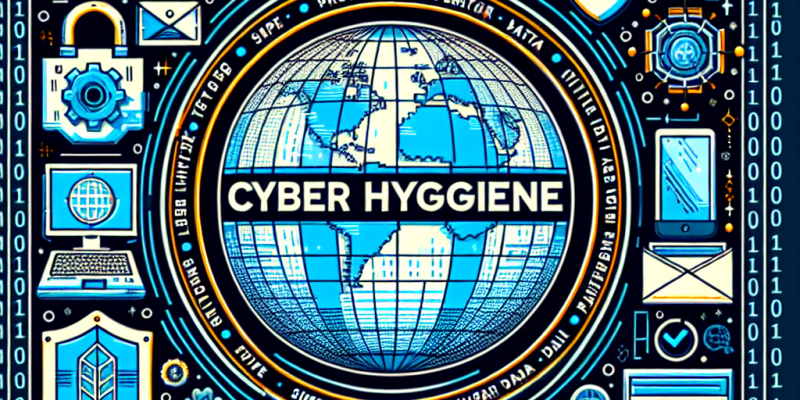Cyber Hygiene: Simple Steps to Safeguard Your Personal Data

In an age where information is as valuable as currency, the importance of maintaining good cyber hygiene cannot be overstated. Cyber hygiene refers to the practices and steps that users take to maintain the health of their digital devices and ensure their data remains secure. With an increasing number of data breaches and cyber threats, it’s essential for everyone—individuals and businesses alike—to adopt routines that protect their personal information. Here are some simple steps to safeguard your personal data effectively.
1. Use Strong, Unique Passwords
One of the most fundamental aspects of cyber hygiene is password management. Weak or reused passwords make it easy for cybercriminals to gain access to your accounts. To enhance your security:
- Create long passwords: Aim for a minimum of 12 characters, incorporating a mix of uppercase, lowercase, numbers, and special symbols.
- Avoid common words: Stay away from obvious words or phrases, especially those related to personal information.
- Use a password manager: A password manager can securely store and generate complex passwords for you, reducing the temptation to reuse passwords.
2. Enable Two-Factor Authentication (2FA)
Even the strongest passwords can be compromised. Adding an extra layer of security with two-factor authentication can make a significant difference. 2FA requires users to provide two forms of verification before accessing an account, typically something you know (your password) and something you have (like a smartphone app or a text message code). Enabling 2FA can be a simple yet effective way to bolster your security.
3. Keep Software Up to Date
Software updates often include security patches that protect against emerging threats. Keeping your operating system, applications, and antivirus software current is a crucial step in good cyber hygiene. Set your devices to automatically update whenever possible, so you don’t miss out on important security enhancements.
4. Be Wary of Phishing Attempts
Phishing attacks are a common tactic used by cybercriminals to steal personal information. These attacks often come in the form of misleading emails, texts, or social media messages that appear legitimate. To protect yourself:
- Don’t click on suspicious links: Hover over links to see the actual URL before clicking.
- Verify senders: If you receive a suspicious email from a known contact, confirm with them using a different communication method.
- Look for red flags: Misspellings, unusual URLs, and generic greetings can indicate phishing attempts.
5. Secure Your Devices
Both physical and digital security are essential for protecting personal data. Here are some ways to secure your devices:
- Use biometric authentication: Features like fingerprint or facial recognition add an extra layer of protection.
- Lock your devices: Ensure that your devices automatically lock after a period of inactivity.
- Install reputable security software: Good antivirus and anti-malware programs can detect and stop threats before they cause harm.
6. Be Cautious with Public Wi-Fi
While it’s convenient to access the internet from cafés, airports, or parks, public Wi-Fi networks are not secure and can expose your data to hackers. To mitigate risks:
- Avoid sensitive transactions: Don’t log into bank accounts or enter sensitive information while on public Wi-Fi.
- Use a Virtual Private Network (VPN): A VPN encrypts your internet connection, making it significantly harder for cybercriminals to intercept your data.
7. Regularly Review Your Privacy Settings
Social media platforms and online services often have default privacy settings that may leave your information exposed. Take the time to review and adjust these settings to limit who can access your personal data. Use privacy-focused platforms and tools whenever possible to minimize data collection.
8. Backup Your Data
Regularly backing up your data is crucial to protecting against data loss due to hardware failure, ransomware, or other cyber threats. Use an external hard drive or a reputable cloud storage service to secure your important files. Automating backups can help ensure you don’t forget to do this regularly.
Conclusion
In an increasingly digital world, maintaining good cyber hygiene is critical for protecting your personal data. By implementing these straightforward practices, you not only safeguard your information but also reduce the risk of falling victim to cyber threats. Being proactive and informed about your online security can help ensure your digital life remains private and secure. Remember, cyber hygiene is not a one-time task but an ongoing commitment—stay vigilant and prioritize your cybersecurity!














